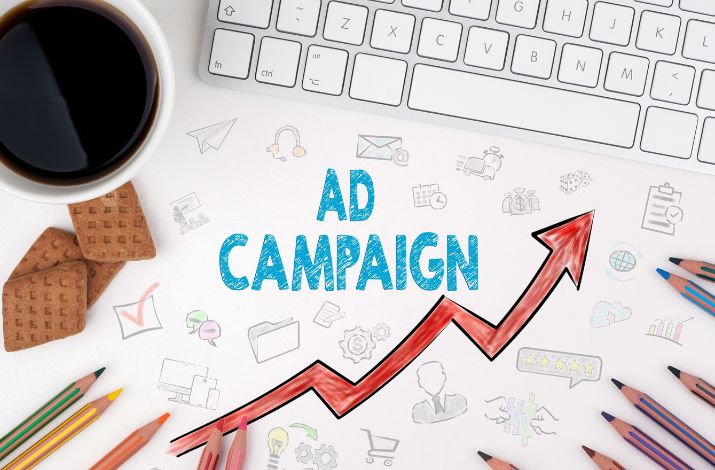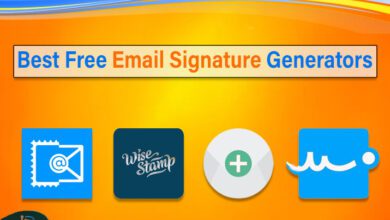Explained: How Organic and Paid Marketing Differ

The online market has undergone a paradigm shift in recent years. Businesses are constantly trying their best to put themselves across their potential customers. They have been using dual strategies, namely, organic marketing and paid marketing. That’s because these two methods comprise various benefits, and understanding their differences is vital for the proper and successful structuring of your marketing plans.
Although they function differently, their end goal remains the same: to boost website traffic. Businesses should know their strengths and weaknesses to help them plan properly and select the steps to maximize their benefits.
Let’s dive right into the if’s and why’s of organic and paid marketing.
What is Organic Marketing?
Organic marketing is a strategy that targets to achieve cordial relationships with customers over time, instead of paid advertisement and other quick tactics towards maximum people. This is about generating content that is worth bridging to this audience. The mission is to attain a trusting bond with your clients that will birth long-lasting and fruitful relationships.

Examples of Organic Marketing Channels
There are several channels through which organic marketing can be implemented:
- Search Engine Optimization (SEO): The objective is to optimize your website content to make it easily found on search engines against the right keywords. This increases visibility and redirects traffic to your website.
- Content Marketing: This would be achieved by developing and distributing useful content designed to appeal to and steal the attention of the existing audience on a company basis and benefit from the website.
- Social Media: You can use networking sites like Instagram, Facebook, LinkedIn, and Twitter to interact with your audience every day. Keep sharing engaging content that is relevant to your brand and relatable to your audience.
Read Also: Benefits of Social Media Audit for Brands
Benefits of organic marketing
- Cost-Effectiveness: Organic marketing only demands your time and efforts, eventually saving on your pockets. This could be an effective way to reach small businesses or startups with tighter budgets.
- Long-Term Sustainability: Conversely, paid advertising is a good fit for companies that need immediate results, but its effects are temporary. Organic marketing, which provides a continuous presence that drives the audience to a certain website and continues generating traffic over time, is the opposite.
- Trust-Building with Audience: Many consumers are more inclined to trust organic search results from friends and family than paid advertisements. You can create trustworthy and loyal followers by informing and having genuine relationships with your audience.
What is Paid Marketing?
Paying for ads or campaigns is known as paid marketing, which means the business will pay to display its promotional materials online. When you run ads, you pay a specific chunk to achieve traffic. Organic marketing is supposed to earn traffic from different channels, while paid marketing uses advertising platforms to buy traffic.

Examples of Paid Marketing Channels
There are several channels through which paid marketing can be implemented: There are several channels through which paid marketing can be implemented:
- Pay-Per-Click (PPC): This method of advertising on the Internet is called the pay-per-click model, where advertisers pay a certain amount every time their ads are clicked. To quote it, it is like paid traffic to your site, the opposite of organic visits you cannot get.
- Display Ads: The first type is graphical ads that resource websites or apps. They can be Google ads, banner ads, ads on web pages, or pop-ups.
- Social Media Ads: Facebook, Instagram, and Twitter marketing agencies supply paid advertising possibilities. Companies can display their advertorial content on user’s feeds or even on the right-hand margin while they browse.
Benefits of paid marketing
Immediate Results: Unlike organic marketing, which will build traffic but take time, paid marketing can immediately get your website in front of your target audience. Instantly, you may have traffic on your site after the campaign is on air.
Targeted Reach: The beneficial sales advertising paid marketing allows businesses to target certain populations, locations, and even days of the year. That implies that your ads will have an opportunity to be displayed to people who are enthusiastic about your products or services.
Scalability: As your business grows, your marketing volume should be able to expand. You must expand or refine your ad spend to reach more people or give the right specificity.
Key Differences Between Organic and Paid Marketing
1. Cost: Free vs. Paid
Organic marketing does not include the purchase of ads. Instead, it requires allocating time and energy. Here, we offer inexpensive and effective activities such as social media (posting), SEO (optimizing), and blog writing. On the other hand, it is worth noting that even though these activities, such as volunteering, fundraising, or counseling, don’t have a direct cost, they require resources, time, and labor cost to execute.
On the contrary, paid marketing offers a monetary benefit that must also be considered. When you bid on a PPC campaign, you know that you pay every time your ad is shown in a display advertising campaign. The expense is also related to the possibility of different parameters, such as competitors’ keywords and the audiences you target.
2. Timeline: Gradual vs. Immediate
Organic marketing campaigns usually yield remarkable, steady, and long-term returns. It is not a quick fix to obtain SEO results, accumulate social media followers, or grow your email subscribers. Even so, after an initial pullback, loyal customers may recommend the enterprise to their friends, and thus, slowly, considerable traffic can be generated.
Purchased marketing coverage can offer quick returns. Once the ads hit the online space, your business gets traffic. This is precisely why the “paid marketing” approach works in short-term campaigns when increased visibility is the focus.
Read Also: Simple SEO Tips to Get More Business in 2024
3. Control: Limited vs. Full Control
Organic marketing leads to less extensive audience control, as only those who search for your content will see it. The algorithm decides what content it should serve, and organic outreach is the success of the social media platform.
On the other hand, paid marketing gives you much control. You can be as specific as you like and target your advertisement to individuals’ demographics, interests, behavior, etc.
4. Longevity: Long-Term vs. Short-Term Results
Organic marketing strategies are usually compared to being a long-lasting solution. The SEO-optimized material you have produced and is built on will still draw attention while the material is relevant.
On the other hand, unpaid marketing strategies like organic search engine results and social media do not have quick outcomes. Paying for the traffic your ads produce while running is how you get your return on your intelligent investment. Although the ads will end, the growth in the traffic stream is most likely to terminate.
Key Takeaways
Experts at Mavlers, a new-age digital marketing homeland, believe that the art of balancing between organic and paid marketing is the key to the sustainable growth of your business. See, your business deserves to be more visible at every new product or service launch. How will you get those? Through paid marketing, of course. And then, to cash in on that audience to maintain a higher retention rate, you need a focused organic marketing strategy. Contact our subject matter experts at Mavlers to learn more about what would work best for your business.
Remember that the most efficient marketing strategies usually include organic and paid conversion. Hence, don’t restrict yourself to using only one approach. Research, experiment, and find the dosage that best meets your business’s needs. Actually, the mantra of marketing is all about fluidity and adjustment.






